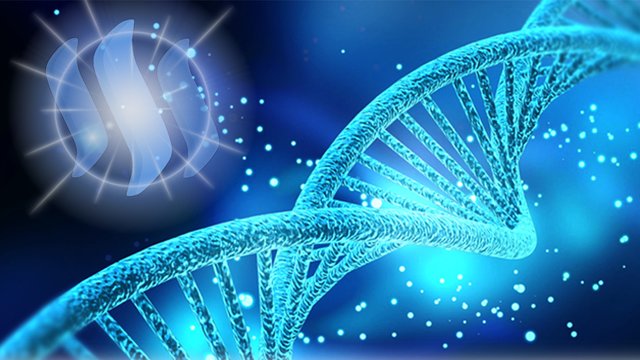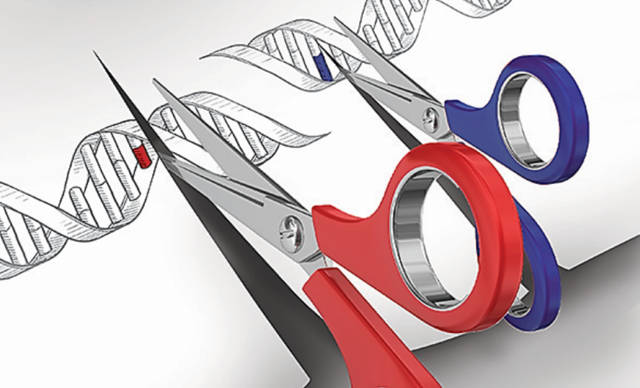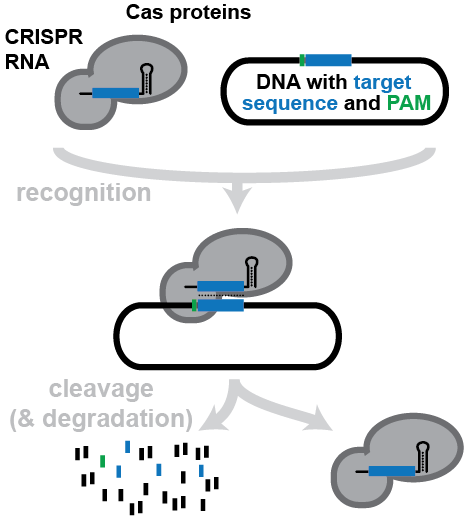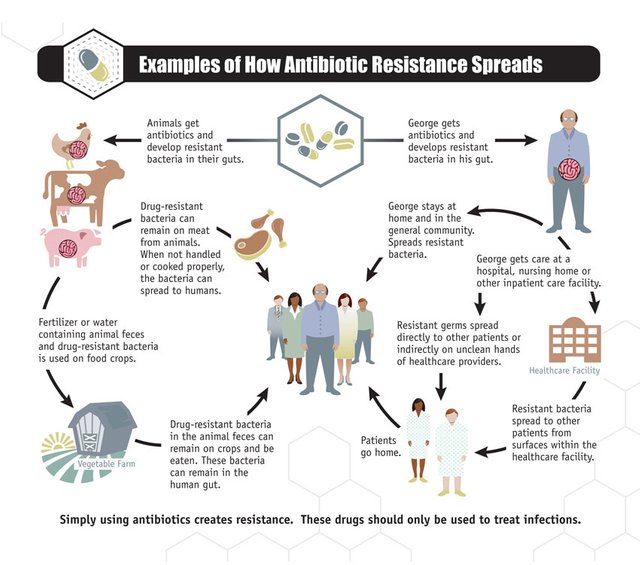New Discovery: Fighting Antibiotic Resistance With CRISPR ?!

I have already written a post about CRISPR-Cas9, the revolutionary gene-editing method that has the potential to change humanity forever.
In short, this is how it works (Quote from my own post) :
"CRISPR-Cas9 (short for Clustered regularly interspaced short palindromic repeats) is a system for gene modification. With this new, revolutionary technology, you would be able to specifically change and edit sequences of your DNA. You could completely delete certain genes from a cell, or simply alter the amounts of it, or create a mutation inside a gene by changing the base pairs (tiny pieces of DNA)."
So this method is based on a protein called Cas9, and is currently the most popular use for CRISPR.

As revolutionary as this is, there might actually be another use for CRISPR, in combination with the protein Cas3!
Researchers from Locus Bioscience in North Carolina might have found a way to use it against antibiotic resistance.
What is CRISPR-Cas3 and how does it work?
Cas3 is an enzyme that can destroy certain parts of DNA.
It's similar to Cas9 since both can be programmed to target specific DNA - but the difference is that Cas9 cuts like a scalpel, and the cut can be repaired.
Cas3 on the other hand can chew up bacterial cells of targeted DNA until it's so damaged that it could never be repaired again.
Co-founder of Locus Bioscience, Paul Garofolo, explains the process similar to the popular video game PacMan, who eats small dots along his way:
“It comes in and it chews the target DNA so when a Pac-Man chews the chromosome it in turns kills the bacterium. (...)"“Cas3 is a meaner system and more cumbersome than Cas9, but if you want to cut a tree and get rid of it, you bring a chain saw, not a scalpel.”
-Paul Garofolo
The Problem with antibiotic resistance
When Penicillin first came up in the 1940's, it was a life-saver to millions of people and was treated as the new miracle cure for almost everything.
But over time, more and more kinds of bacteria have become resistant to popular antibiotics.
That's because there is a selective pressure for the survival of resistant bacteria: Those bacteria who are resistant to an antibiotic have a bigger change of surviving - since the other bacteria will be killed by the antibiotic.
While this process also happens naturally, it's currently enhanced by human action - antibiotics are being over-used and even abused in some cases.And it's getting worse:
Antibiotic resistance could become a very serious threat in the future.
There are already quite a number of of bacteria that have become resistant to current antibiotics, for example the so-called staph bacterium. You can infect yourself with it in hospitals, and about 2 out of 100 people already carry it. Untreated, this can lead to sepsis and death!Future Outlook with Locus
To fight this problem, Locus Biosciences hope to use CRISPR-Cas3 - they have already patented the new technology.
They are already in the process of receiving significant funds for the realization of this project, and they have a team of experts on their side: Barrangou, Co-Founder, was one of the scientists that helped Jennifer Doudna to found the CRISPR company Intellia. So he's already very experienced in the field of CRISPR.But of course, the technology is not quite ready yet ...
Before we can see this method in action, it has to be approved by the FDA first, and then needs to go through countless human trials.
But still, it has a lot of potential and could become very important in the fight against antibiotic resistance in the future!
Images: 1, 2, 3, 4, Sources: 1, 2, 3, 4
- Instagram -
© Sirwinchester


This post has been ranked within the top 10 most undervalued posts in the second half of Dec 23. We estimate that this post is undervalued by $20.70 as compared to a scenario in which every voter had an equal say.
See the full rankings and details in The Daily Tribune: Dec 23 - Part II. You can also read about some of our methodology, data analysis and technical details in our initial post.
If you are the author and would prefer not to receive these comments, simply reply "Stop" to this comment.
beautiful , promising
thnx
I work as a doctor and the first line antibiotic change almost yearly because of resistant
some antibiotic being unrelevant at all to treat disease that was treating successfully before
Hi Doc, a question for your opinion; is there promise also in nano silver as compared to antibiotics?
Hi kyusho , as far as i know Silver nano is a good method for sterilization and disinfection
i mean it use to protect from infection but not to treat it
correct me if am wrong bro , hope my answer helped :)
by the way now am following you
Thanks for the answer Doc... yes it helps as there is no clear cut yes or no, so as many pertinent opinions we gather the better. I use it for many things and it seems to work well, just topically.
Following back Sir.
really interesting Kyusho
i think you should do a blog about that , to explain it and tell your experience with Silver nano
Waiting to hear about it , if you agree :)
Thnx for the follow Sir ?
Sure... I have a few already lined up for the weekend so I can just press and go, after the Holiday I will.
Very interesting, thanks for the input.
I hope crispr can be used to fight these ever-changing antibiotic resistances!
i hope so bro but it need time for research and trial to be approved
thnx again for the blog :)
Ooh... playing where they ought not.
We'll see how this innovation turns out!
Nice. Upvoted
Thank you!
When the bugs get resistant humans will truly know what a real nightmare is.
That's true .. let's hope we can find a solution before it gets to that point
Yes I hope we do
Hi @sirwinchester - I admire your curiosity diving into any subject that catches your interest. But manipulation of genes with cut and paste ... I don´t believe in the sustainability of this approach. There is just too much mechanical thinking in it.
The human organism is not like a machine, where you can repair things mechanically. Live is a holistic self-emerging phenomena, which has to be understood more like looking at ecological systems. The paradigm of genes ruling every aspect of living systems is imho short sighted. The late findings of epigenetic factors show how cross linked the "milieu" is with the governance of cells. I like to give a hint to the ideas of Bruce Lipton and Rupert Sheldrake. The question is wether the genes (DNA) are the brain of the cell or mere the hard-drive, made for storage reasons. I like the findings of Lipton the cell-membrane being the true governor of the cell. The communication to the outside is crucial - like the brain and nervous system derives from the ectoderm as embryology shows.
I treat many patients successfully with problems coming from MSRA (resistent germs) - homoeopathy shows great effectiveness.
Why is nobody in the hospitals around, in medical colleges asking homoeopaths to treat these helpless people with MRSA infections? Many of them die! - It is the heavy and subtle domination of Medicine by big pharma. The colleges have been brainwashed, that homoeopathy cannot work. The bioscience companies are part of big pharma and lot of money is spended and earned there. We as homoeopaths merely have this knowhow of two centuries - no company can earn anything with us, the remedies are extremely cheap - so there is no investigations, no money going into research.
There has to be a paradigm shift - and I don´t see this coming soon. Only in India you can see some public consensus and homeopathy has it´s respected place there. Maybe homeopathy will be needed in future, when all this mechanical thinking, which comes along with the philosophy of power, has shown its flaws.
Great article ! I see a promising future for CRISPR. Did some articles myself about that topic. Would be cool if we could have an exchange about that topic.
Best
Alex
This sounds extremely interesting. We're in urgent need of new antibiotics, as tens of thousands of people all across Europe dies every year because of antibiotic resistance.
By the way, I wrote a short article on how our current model for financing new antibiotics is not sustainable: https://steemit.com/politics/@protoken/antibiotic-resistance-we-can-develop-new-antibiotics-but-need-a-new-way-to-finance-it
I wrote another short article on some ethics regarding using crispr: https://steemit.com/crispr/@protoken/use-crispr-to-heal-illnesses-not-social-problems
Please feel free to take a look at the posts, and point me to other relevant posts on the subjects.